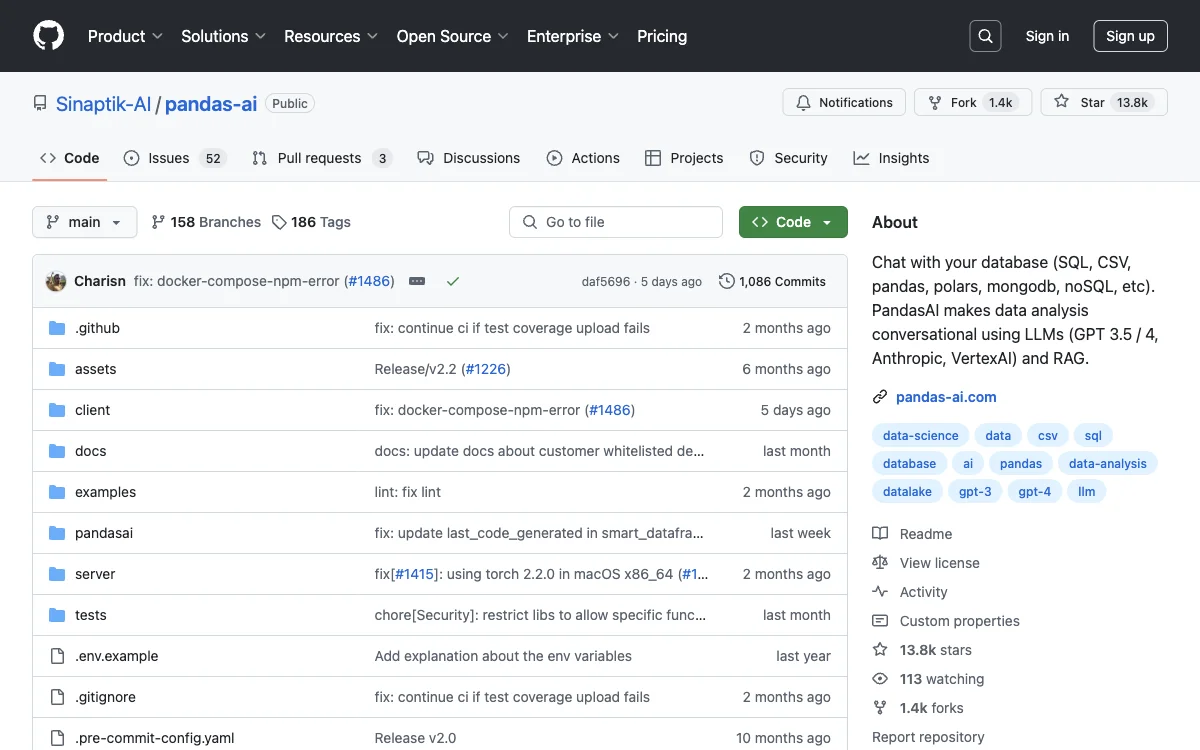PandasAI revolutionizes the way we interact with data by allowing users to ask questions in natural language, making data analysis accessible to everyone. This innovative platform supports a wide range of data sources including SQL, CSV, pandas, polars, mongodb, and noSQL databases. By leveraging Large Language Models (LLMs) like GPT 3.5 / 4, Anthropic, and VertexAI, PandasAI facilitates conversational data analysis, enabling users to derive insights without the need for complex queries or programming knowledge.
Deploying PandasAI is straightforward, with options to integrate it into Jupyter notebooks, Streamlit apps, or as a REST API using frameworks like FastAPI or Flask. For those interested in more advanced deployments, PandasAI offers a managed cloud service and a self-hosted enterprise solution.
Getting started with PandasAI is easy. The platform uses a dockerized client-server architecture, requiring Docker to be installed on your machine. After cloning the repository and building the platform with Docker, you can run it and access the client interface at http://localhost:3000. The PandasAI library can also be installed via pip or poetry, making it simple to incorporate into your Python projects.
PandasAI's capabilities extend beyond simple queries. Users can ask complex questions, visualize data through charts, and even analyze multiple dataframes simultaneously. The platform ensures privacy and security by randomizing data samples before sending them to the LLM, with options to enforce stricter privacy measures.
PandasAI is open-source, licensed under the MIT expat license, and welcomes contributions from the community. Whether you're a data scientist looking to streamline your workflow or a non-technical user seeking to make data-driven decisions, PandasAI offers a powerful, intuitive solution for conversational data analysis.

